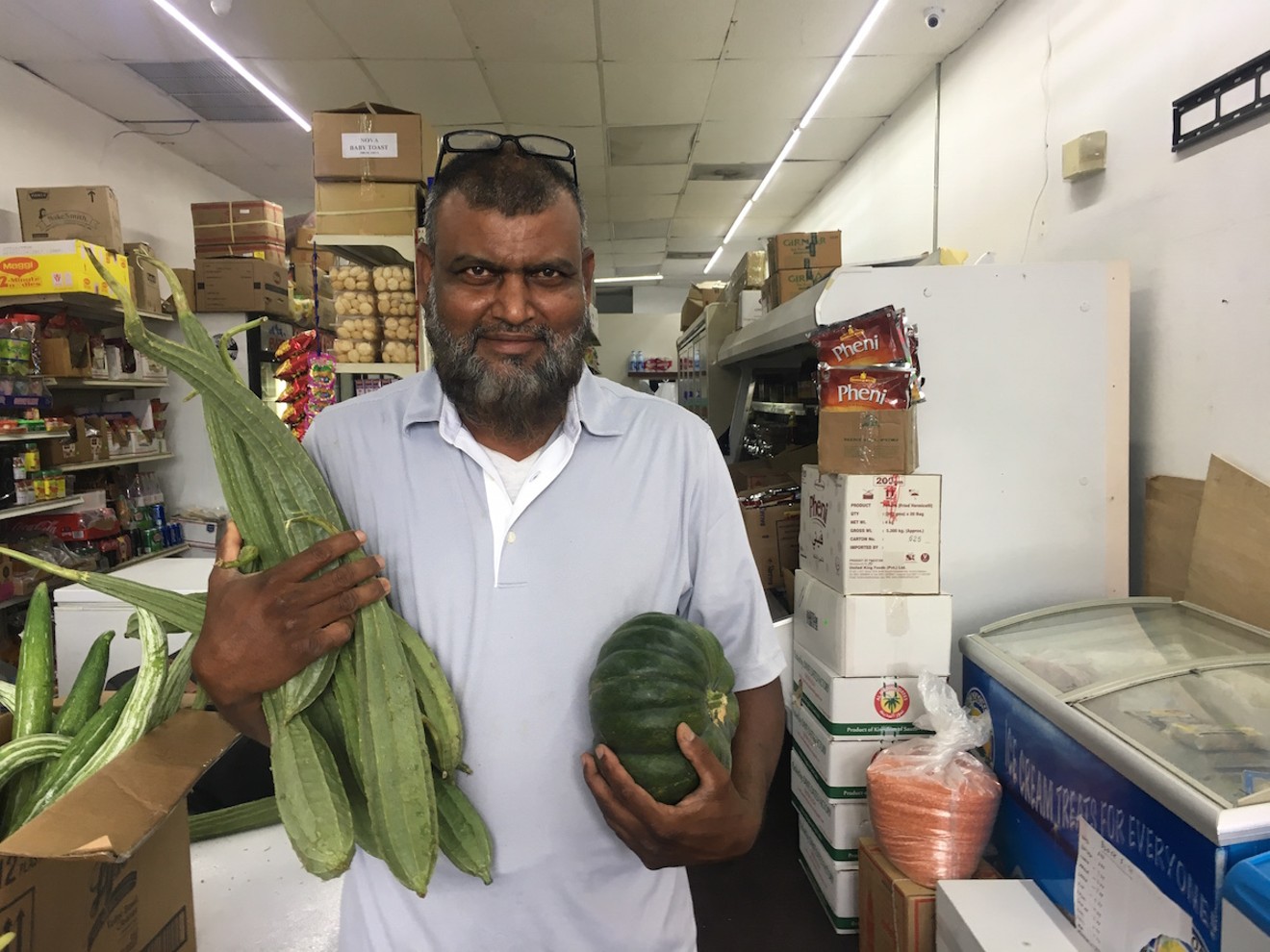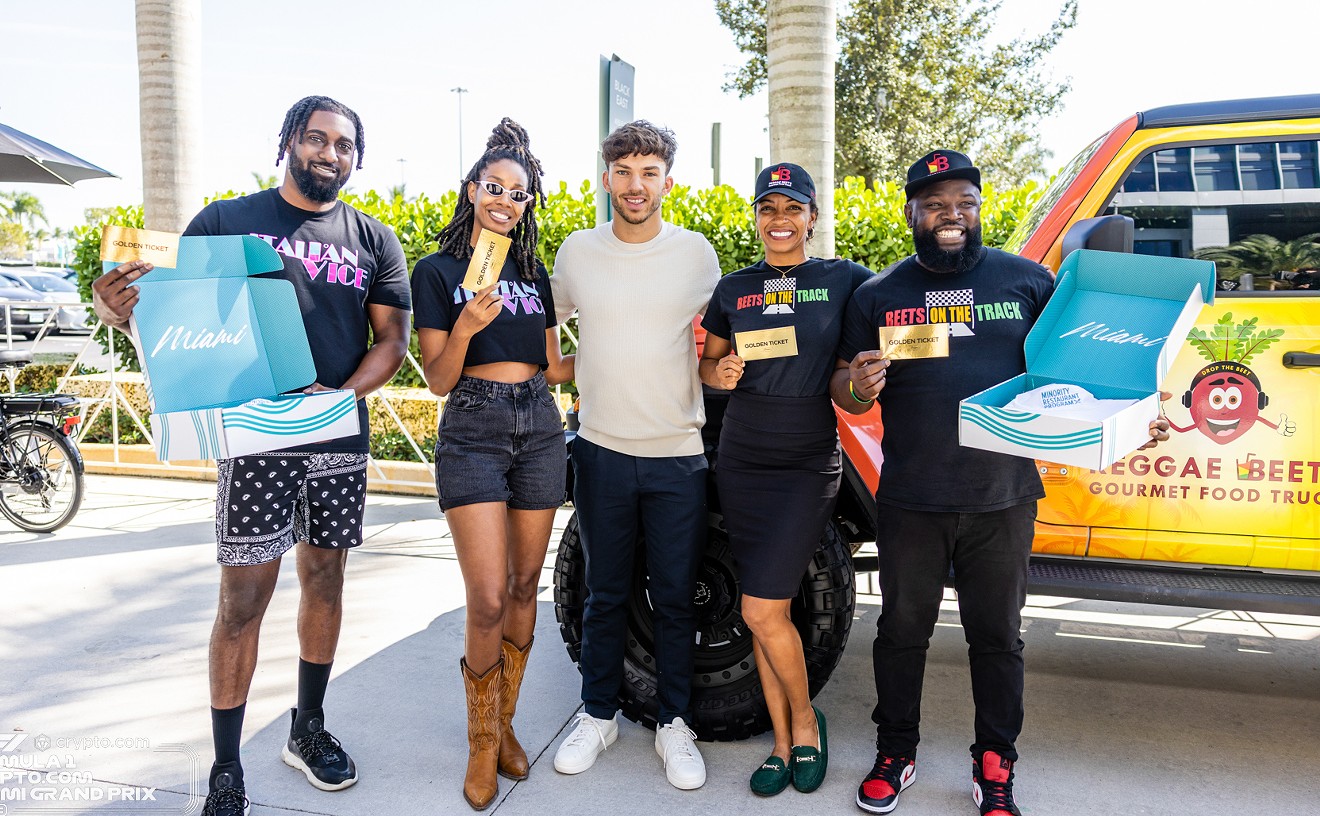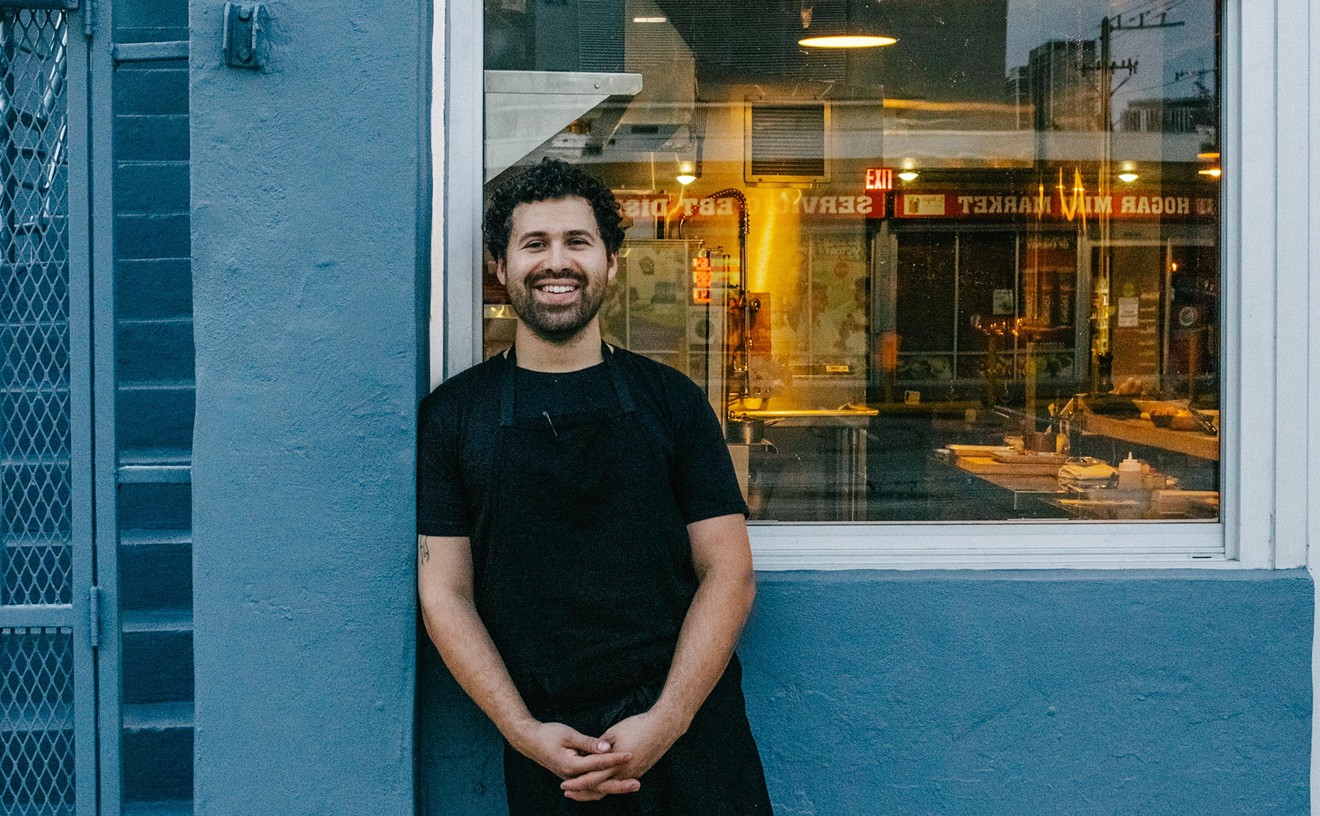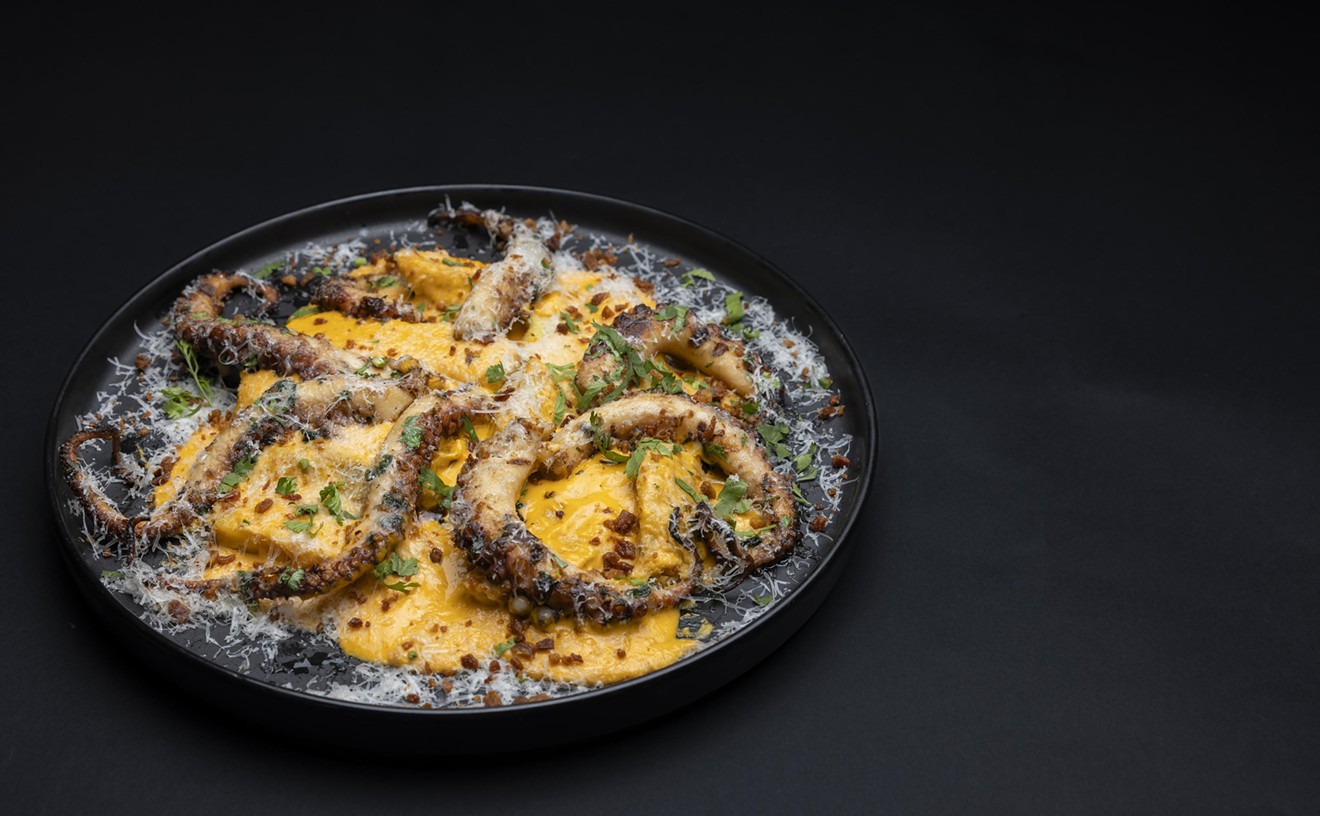As 28-year-old Rizwan Sowkat tries to explain the taste of fish such as ayer, boal, and shor puti, entombed in his freezer cases at his grocery store, Sonali Bangla (16460 NE 16th Ave., North Miami Beach; 305-945-7544), he pauses and offers a curt nod when Kamrul Khan steps through the door.
The 47-year-old Bangladeshi towers above six feet. His piercing brown eyes are set into dark sockets, and his black beard is peppered white. But what's most noticeable about him are his armfuls of vegetables. Bunches of the long skinny squash called snake gourds nearly slip from his grip. They are the ridged variety he calls Chinese okra, which when cut reveal a cross section like a seven-point star.
During the next few minutes, the two men, speaking in rapid-fire Bangladeshi, seem to be hammering out a deal. Amid the negotiation, Khan returns to his car to fetch a few kabocha squash and fat, fuzzy verdant gourds with seemingly three-day-old stubble that might be just a touch shorter than your grandmother's whiskers.
As the deal is finalized, Khan begins explaining how he has slowly transitioned out of a life of running Palm Beach County convenience stores to one of farming, a profession that stretches back generations in his family, long before their homeland, now called Bangladesh, was known as East Pakistan.
"It's something everyone did. It's how we ate. It was natural," Khan tells New Times. About seven years ago, he purchased a 20-acre tract in Clewiston and began clearing it to raise goats, chickens, and the South Asian produce that would thrive in South Florida but was hard to find.
"We're just starting to see results. I have a crop of tamarind coming soon," he says.
Every week, Khan shuttles some of his harvest to a handful of Asian markets dotted across South Florida, providing a kind of taste of home for the South Asian community. He also sells halal goat and beef to those in need.
It's a service that Sowkat, who goes by the nickname Nomi, turned to last year after he found running convenience stores and prepaid-cell-phone kiosks unfulfilling. He moved to Miami from Chittagong, a port city on the Bay of Bengal, in 2004 to pursue an education. He wanted to go into business, like his father, who raised the family well by buying and selling property on busy street corners that housed convenience stores. Yet after graduating from Broward College and beginning to follow his father's path, he saw the need to do something more. And clearly, there's a need for it: Not long after Sowkat and Khan settle up, two Bangladeshi families arrive to snatch up some greens for the week.
"This is something I believe in and something people need," Sowkat says. "As a Muslim, I can believe in what I'm doing here."
Indeed, Sowkat's store recently offered a number of pantry staples, such as dal, garlic paste, ginger paste, and sooji — a wheat flour used to make pastas and couscous — at special prices for the holy month of Ramadan.
"I'm creating a business here," he says, "but once I decided it would be halal, that was something much more important."
[
{
"name": "Air - MediumRectangle - Inline Content - Mobile Display Size",
"component": "19274298",
"insertPoint": "2",
"requiredCountToDisplay": "2"
},{
"name": "Editor Picks",
"component": "17482312",
"insertPoint": "4",
"requiredCountToDisplay": "1"
},{
"name": "Inline Links",
"component": "18711090",
"insertPoint": "8th",
"startingPoint": 8,
"requiredCountToDisplay": "7",
"maxInsertions": 25
},{
"name": "Air - MediumRectangle - Combo - Inline Content",
"component": "17482310",
"insertPoint": "8th",
"startingPoint": 8,
"requiredCountToDisplay": "7",
"maxInsertions": 25
},{
"name": "Inline Links",
"component": "18711090",
"insertPoint": "8th",
"startingPoint": 12,
"requiredCountToDisplay": "11",
"maxInsertions": 25
},{
"name": "Air - Leaderboard Tower - Combo - Inline Content",
"component": "17482313",
"insertPoint": "8th",
"startingPoint": 12,
"requiredCountToDisplay": "11",
"maxInsertions": 25
}
]











